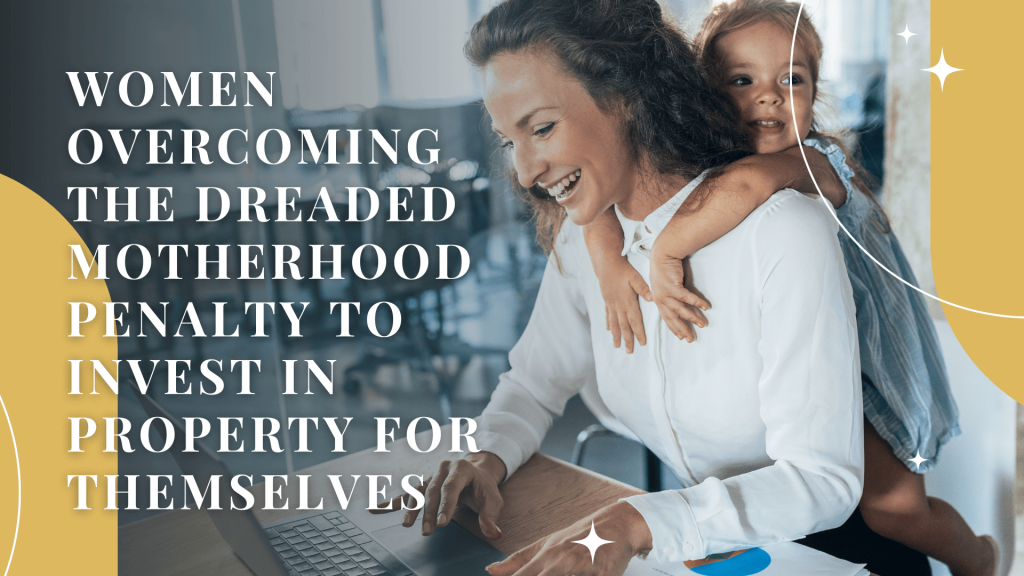

Even women who significantly out-earn their partner take a hit along with motherhood.
Indeed, according to the Treasury Department highly educated women holding management positions experience a bigger penalty, despite the major opportunity cost for employers of reducing their participation.
As for fathers? The research found men’s earnings remained unaffected by entry into parenthood.
Women’s Finances Making the News
Women’s financial independence has been in the news a lot recently. From workplace participation, the ongoing struggle for equal pay and the debate over childcare, and the less than savoury findings about Queensland Police’s toxic culture, women are increasingly front and centre in the mainstream media.
Little attention has been paid, however, to the challenges confronting women in building a property portfolio.
Putting A Microscope on Workplace Flexibility
Workplace flexibility also proves to be an important factor affecting the motherhood penalty.
According to research, women who enjoyed access to flexible working conditions before having children were more likely to stay employed after having their children.
However, even women working in flexible occupations copped a wage penalty and lost opportunities for promotion due to motherhood and its increased household responsibilities.
As usual, when it comes to women’s finances, improving the utilisation level of women’s skills would naturally increase society’s returns on investments from its under-utilised female human capital. Ladies, you need to be strategic when it comes to investing.
Delicate Negotiating the Property Investment Balancing Act
If women leave it too late before entering the ‘giving birth and nurturing’ stage of their lives, they often must resign themselves to the unpleasant reality that they won’t financially be in a position to invest until much later in their life.
Why? Because thanks to the blighted motherhood penalty, they won’t be able to service a loan.
If you’re in your 20s or 30s, your sunniest option may be to adopt a Rentvesting strategy to get your foot onto the property ladder.
Rentvesting remains a savvy option as property prices in the Perth and Adelaide markets remain lower than those in Sydney, Melbourne and Brisbane. Lower prices allow Rentvestors to invest in an affordable and financially conservative way.
Women Mastering Property Investment
By now, we’re all familiar with the turbulence associated with the Reserve Banks of Australia’s unprecedented recent interest rate hikes.
While 2022 has seen the most rapid rise in interest rates experienced in 20 years, triggering higher repayments on existing loans, market uncertainty always represents opportunities for smart investors to pick up bargains in the market.
It’s also an excellent time to review your current property portfolio and revisit your investment strategy.
After all, you want to take advantage of the current market conditions too!
Interestingly, while women make up a tad under half of all Australians who invest in property, they seem to consistently do a way better job of it compared to their Y chromosome-encumbered male counterparts.
According to Australian Taxation Office data, female property investors outperformed their male counterparts by a whopping 40 basis points during 2016. Unsurprisingly, they’ve consistently outperformed them ever since.
What is the secret to their success?
Research shows women tend to be more cautious in settling on their investing strategy. They devote substantially more time to researching their target market. Moreover, they typically search for properties with lower risk and accept the trade-off of lower returns.
Women also clearly prefer long-term investments rather than continually pursuing the short-term growth offered by riskier market segments.
Final Observation
Whatever your age, your gender, or your income, there’s an investment strategy for everyone which will enable them to build a rewarding property portfolio. However, it’s up to you to take that all-important first step.
